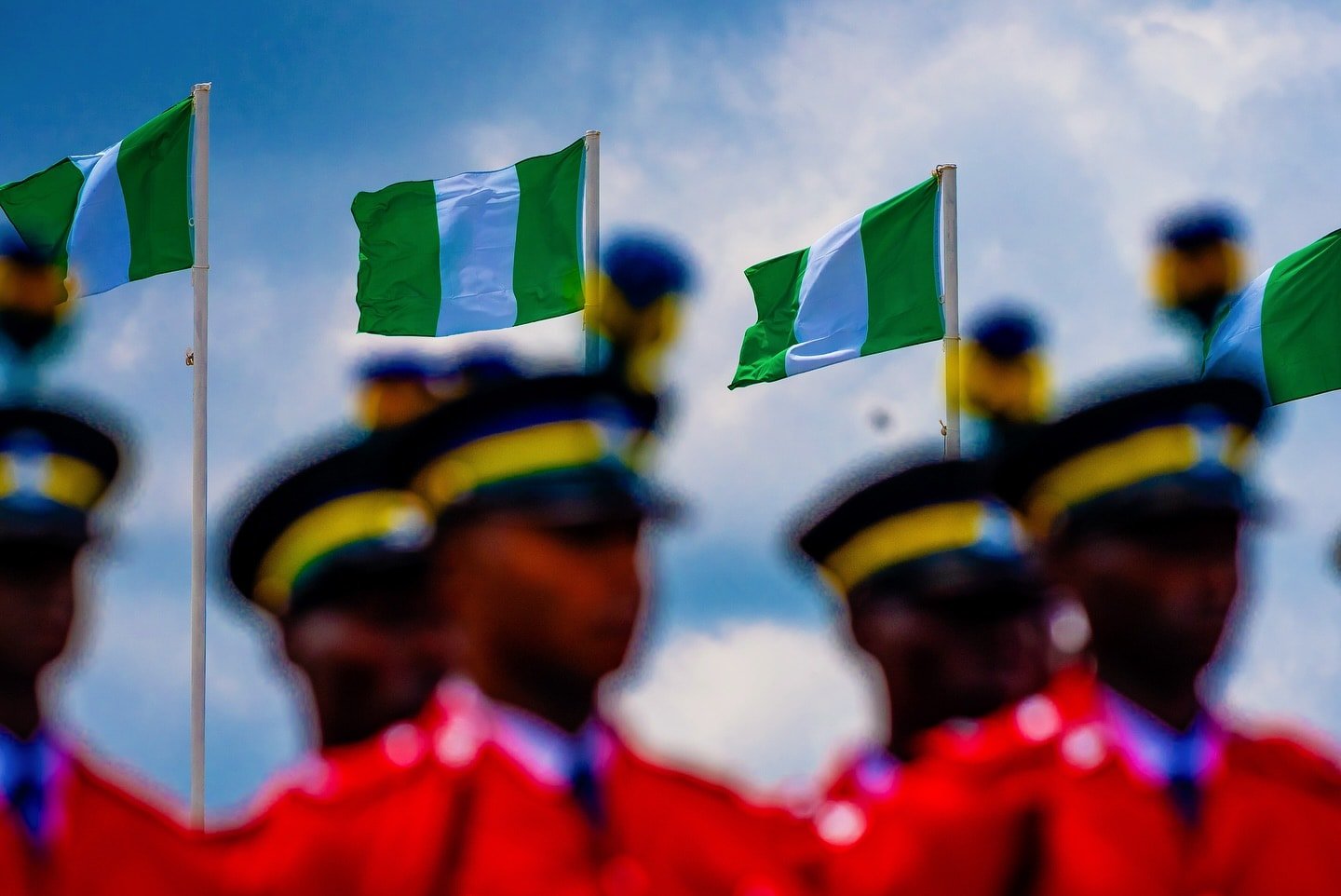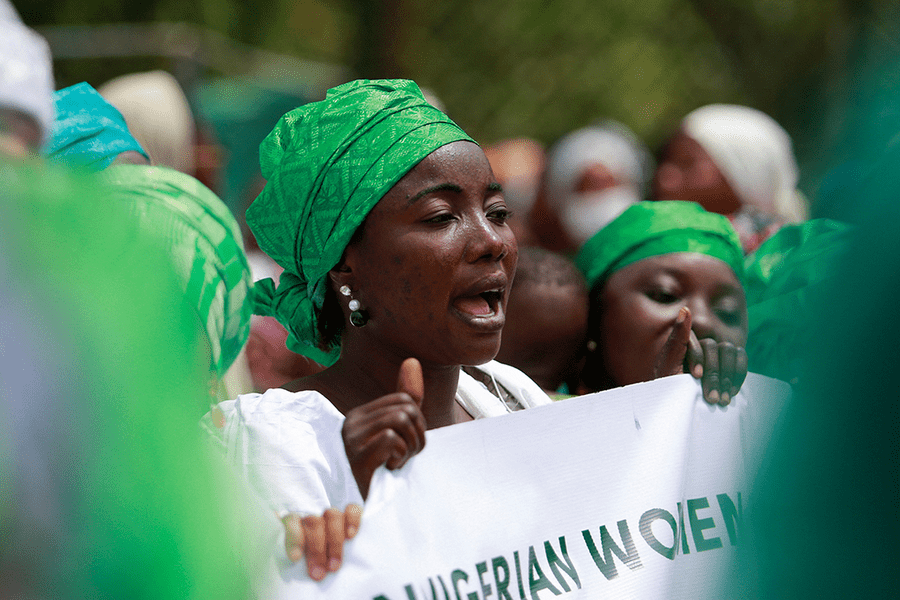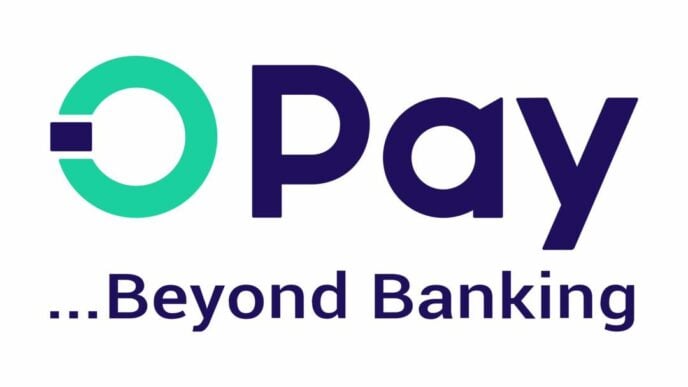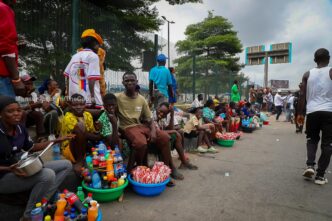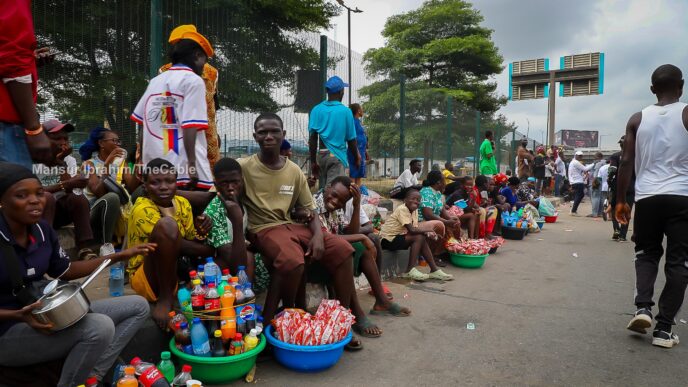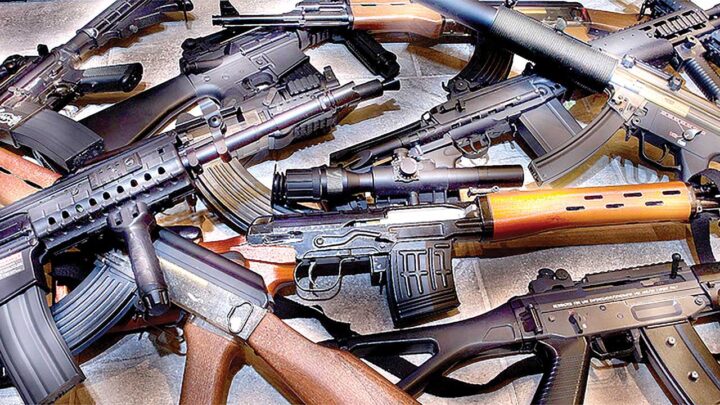BY JAN ZAHORIK AND PATRICK OKIGBO III
In September 2024, Czech Africanist Jan Záhořík met Patrick O. Okigbo III, a former advisor to Nigerian President Goodluck Jonathan. This was part of StartCom, a programme of the ministry of foreign affairs of the Czech Republic organised by the Embassy of the Czech Republic in Abuja. Jan Záhořík and Patrick O. Okigbo III discussed the future of Nigeria, economic challenges and prospects, and Czech-Nigerian relations.
JZ: Patrick, Nigeria is supposed to be the leading economy in Africa, or at least one of the leading ones. However, over the last few decades, we have observed that inequalities still exist in the country. Thinking about economic progress or a meaningful future is easier with stability and security. So, what went wrong in Nigeria? Why is the country facing so many troubles regarding internal security or widespread insecurity?
PO: The problem seems easy to define but could be complex. In Nigeria, insecurity is the result of a combination of interconnected factors. For instance, terrorism in the Northeast may initially appear to be a religious problem. At the same time, the secession agitations in the southeast could be seen as a political issue, with the Igbos seeking to secede from Nigeria. Additionally, the prevalence of cultism and gang violence in the southwest may seem to be a breakdown of law and order simply. However, at the core of these conflicts lies an economic problem. Widespread poverty and hunger are the driving forces behind the agitation, often resulting in violent conflict. With Nigeria’s GDP per capita at approximately $2,500, it is evident that a miraculous increase to $20,000 would alleviate many of the political conflicts prevalent in the country today. By addressing the economic disparities, there is potential to mitigate the root causes of these conflicts, paving the way for a more peaceful and prosperous society.
Advertisement
JZ: This may well significantly impact identity issues, right? Identity clashes are more likely to increase with miserable socio-economic situations because it can be easier to mobilise people, correct?
PO: Yes, I agree. The prevalence of hunger stands as a significant challenge that we must address. How did we get to this level of hunger? It is common for the media to attribute this issue to the current government in power. Today, we blame President Tinubu for everything. A few months ago, it was President Buhari; earlier, it was President Jonathan. However, it is essential to recognise that the problem is multifaceted and cannot be simplistically attributed to a single cause. Our economic challenges are complex, stemming from a combination of factors. Incompetence has led us to our current economic state, as evidenced by poor policy choices and implementation. These issues are exacerbated by incompetent individuals within the bureaucratic system.
JZ: Often, the blame is not solely attributed to the political leaders but also to the lasting effects of colonialism, which can serve to absolve responsibility and accountability. This phenomenon is reminiscent of how some individuals in Central Europe attribute certain issues to the enduring legacy of Communism. Do you think the prevalence of incompetence can be linked to clientelism and nepotism, wherein politicians appoint individuals who are either their relatives or loyal to them, often due to their lack of education, making them easily influenced by those in power? Conversely, do you think incompetence stems from a lack of access to power for the skilled and well-educated individuals in Nigeria, thereby perpetuating an exclusive rather than inclusive system? Nigeria has a wealth of talented and educated individuals who could be the leaders of tomorrow, yet they seem to be marginalised from positions of influence. I would appreciate your perspective on this matter.
Advertisement
PO: In the 1970s, Professor Richard Joseph introduced the term “Prebendalism” to describe a political patronage system in which public officials utilise their positions to access and distribute state resources for personal, ethnic, or group benefit. Furthermore, Professor Peter Ekeh’s “Two-Publics” theory elucidates the dual structure of public morality and social organisation in post-colonial African societies. According to this theory, public officials in the Civic Public feel no moral obligation to the state and perceive the public treasury as available for plunder. However, within their Primordial Public, they adhere to the norms of their kinship groups and uphold moral obligations. This implies that the same public servant who may misappropriate public funds will exercise care in managing the resources of his Town Union.
Despite the analyses, Nigerian politicians are similar to politicians in other countries. The main difference lies in the political economy in which they work. Therefore, we need to go back to the beginning to understand how we arrived at our policy choices and how the current leaders in Nigeria came into power.
The answer to this question depends on where one decides to start. Many people will begin with Nigeria’s independence in 1960. However, there were forces that shaped the options available at independence. Therefore, one could go back to 1914 when the British colonialists amalgamated Northern and Southern Nigeria. One may even go back to the arrival of the colonialists and how the political structure they brought distorted the societies they encountered. However, I am concerned about looking so far back to find the root of our problems. If we attribute everything happening in Nigeria today to the 80 years of colonial rule, we must also acknowledge that we have had another 64 years of independence since then. The colonial period should not have hindered our ability to create a society that is less exploitative and more inclusive.
However, after gaining independence in 1960, Nigeria experienced a series of military regimes that disrupted the emerging political process. The country missed establishing a solid democratic foundation before the military intervened in 1966. It’s important to note that the military might not have felt the need to step in if the civilian government had been effective. Nigeria continued to be under military rule until 1999 when the country transitioned to an unbroken 25 years of democratic governance. There was a short civilian administration from 1979 to 1983. Unfortunately, the prolonged military exposure meant the politicians who took over in 1999 were primarily former military personnel who had become civilian politicians after shedding their uniforms. Furthermore, the prolonged military rule from 1966 to 1999 led to civilian politicians adopting military traits.
Advertisement
JZ: This sounds more like a civilian-military rule because democracy has perhaps not taken root in Nigeria. And I remember meeting many people here who wished the military would return to power and bring order. However, there is also a danger that Nigeria’s system of governance is based on personal connections rather than merit.
PO: You are right. It has also moved beyond politics to impact our bureaucracy and civil service. Promotions are based more on personal connections and financial influence than merit and achievement. This has led to individuals being promoted to directorship positions based on who they know and their ability to pay for the position rather than their qualifications. As a result, some individuals in these positions may need more skills and competencies for their roles. Furthermore, obtaining positions through financial means can lead to a focus on recouping the investment rather than ensuring the system’s effective functioning. This has contributed to a political economy prioritising personal gain over our institutions’ effective operation.
JZ: The perception of Nigeria as a major oil producer often brings to mind the country’s significant role in the oil industry. However, based on my interactions and experiences with Nigerian individuals, many citizens do not perceive any direct benefits from oil production. It appears that the current system primarily serves the interests of the wealthy, while most people, with monthly incomes of around 45,000 Naira, feel disconnected from the supposed benefits of being the largest oil producer in Africa. To drive actual industrialisation and address the challenges faced by Nigeria, the country needs to reconsider its approach to oil production and explore how it can be leveraged to promote broader societal and economic development.
PO: Nigeria is commonly perceived as an oil-rich state due to its significant crude oil and gas deposits and status as a major producer and exporter in Africa. However, a closer analysis reveals that Nigeria can’t be accurately described as oil-rich compared to countries such as Venezuela. When considering oil production per capita, Nigeria’s output is relatively low, resulting in minimal earnings per capita. Despite Nigeria’s OPEC quota of 2.5 million barrels a day, actual production estimates vary and are significantly lower, especially compared to the country’s large population. Our production could be about one million barrels per day, a small amount for a country of 220 million people.
Advertisement
JZ: It appears that, instead of oil, remittances play a significant role in improving the lives of ordinary people, as is the case in many other African countries. Is this understanding accurate?
PO: The amount of money Nigerians received in remittances last year was higher than the amount the government received from selling crude oil. Indeed, if we focused on exporting more Nigerians, we could earn more from that venture than we currently do from oil. Sometimes, I joke that Nigeria should rebrand as a people-exporting country instead of an oil-exporting one.
Advertisement
However, when we examine why we are unable to meet our OPEC quota of 2.5 million barrels a day, the standard explanation is the violence in the Niger Delta, which leads to oil theft. However, there’s more to it. The root cause lies in the same political economy favouring well-connected individuals over merit. This same system prevents us from addressing the insecurity in the Niger Delta, as it benefits a select group of people. It is understood that security agents posted to the region may get involved in the illicit sale of petroleum products for their financial gains. Hence, it is insinuated that some officers take our bank loan to bribe for a posting to the Niger Delta, knowing that they can pay off the loans in no time. Hence, the incentive system is not structured to encourage a resolution of the insecurity in the region because the veneer of violence is good for business.
Forget the oil theft now. Why is it that Nigeria is unable to produce the 2.5 million barrels per day quota? The lack of clear regulations for the oil sector for decades and the delay in passing the Petroleum Industry Bill caused international oil companies to divert their investments to other African countries, resulting in those countries surpassing Nigeria in oil production. Hence, the same political economy made it difficult for the government to invest in crude oil production capacity. Nigeria needs to invest in discovering new fields. It is also not developing new fields.
Advertisement
In addition, the government set up the Nigeria Extractive Industries Transparency Initiative to promote transparency and accountability in crude oil production and managing sales processes. Despite consistently publishing reports on transparency challenges in the sector, the government must still address the fundamental inefficiencies. This failure benefits certain individuals, enabling them to exploit the system for their own gain. So, the real challenge in the sector is neither oil theft nor violence. It is more beneficial for some people in the industry when there is little clarity on how much crude oil Nigeria produces.
JZ: Patrick, I share your realistic evaluation of the situation. My last question concerns the historical relations between the Czech Republic and Africa. In today’s changing and multi-polarized world, it seems increasingly difficult for smaller countries like the Czech Republic, Poland, and Hungary to maintain or enhance their relations with African countries and their economies, especially with the rise of the so-called Global South, as well as countries like Turkey, India, China, and others. Is there potential for meaningful Czech-Nigerian relations, especially considering Nigeria’s good relations with the Western world?
Advertisement
PO: The way I look at geopolitics is that everyone’s got something they’re looking to get out of the relationship. Hence, it is for the Czech government to define what it wants out of this relationship. Is it the opportunity for more trade, or is it a philosophical relationship? For the latter, the Czech Republic may have a worldview and want more friends to support it. Once the Foreign Ministry and its Embassies have clearly defined the objectives, they can determine the best way to achieve them. The Government of Nigeria has its interests. Both parties will find common ground from which to operate.
However, what I know is that Nigerians are a very pragmatic people. We are hardly doctrinarian on a particular philosophical position. Hardly would you find a Nigerian who is hardcore conservative or hardcore liberal. Instead, we are practical people. We look at situations and ask what tool would work best for the tasks. Hence, you will find Nigerians open to the West and the rest. We align with Kwame Nkrumah, Ghana’s first president, who admonished that, as Africans, we should face neither East nor West; instead, we should face forward. This is probably the overall sentiment you will get from most Nigerians.
However, there are opportunities for good Nigerian-Czech relationship. My hope lies more in the people than in the government. An approach that seeks to deepen the relationship with Nigerians could increase opportunities for closer understanding and trade. Both the East and the West employed that strategy back in the Cold War days and to a lesser degree today. China is building such cultural and business bonds today. The Czech Republic can invest in such cultural, educational, and business programmes to deepen the bond between both countries. However, Nigerians are pragmatic. They will welcome the opportunities but ultimately decide on the philosophies that make the most sense to them. What is the tool to catch the rat? You know, that’s what we’re going to choose.
JZ: Thank you, Patrick, for an amazing discussion!
Views expressed by contributors are strictly personal and not of TheCable.
Add a comment
